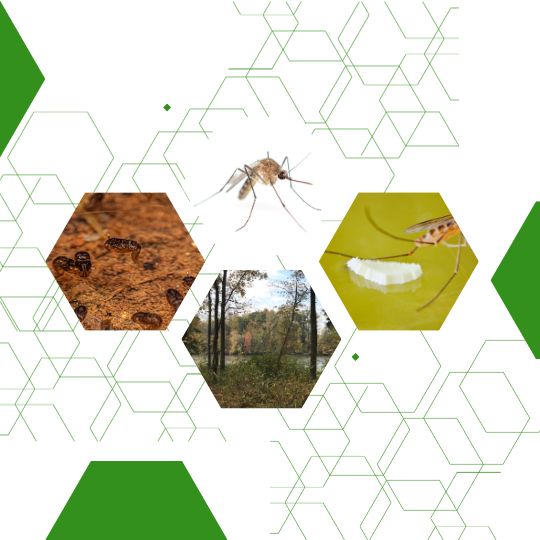The Impact of Weather on Mosquito Activity
Winter is just around the corner (at least, at the time of publishing!) and so we are about to get a reprieve from the itchy and irritating bites of everyone’s least favorite flying insect: the mosquito!
But, where do these nuisances go in the winter? Is there anything that homeowners should do to help prevent them from returning with a vengeance once the weather warms up?
This article will answer these questions and more – providing you with mosquito control advice so you can keep your mosquito exposure to a minimum all year long!
The Prime Weather for Mosquitoes
Here in South Carolina, mosquito season typically runs from March until November. Unfortunately, the season has been growing longer over the past few decades, mostly due to increasingly warmer winters.
Temperature
Mosquitoes are ectothermic creatures, meaning their body temperature and activity levels are directly influenced by the surrounding environment. Most mosquito species prefer warmer climates, thriving in temperatures between 50 to 95 degrees Fahrenheit.
Warmer temperatures accelerate their life cycle, leading to faster breeding and increased population growth. However, when the mercury drops below 50 degrees, mosquito activity significantly decreases, as their bodies do not function efficiently in cooler conditions.
Humidity & Rainfall
In addition to temperature, humidity and rainfall are important factors in the mosquito life cycle. These insects need water to reproduce, with standing water serving as the perfect place for female mosquitoes to lay eggs. High humidity levels also aid in their survival, as mosquitoes lose water rapidly in dry conditions and are more prone to dehydration.
Mosquito Life Cycle & Weather
While our past blog looked at the mosquito life cycle in detail, it’s crucial to understand how weather conditions specifically impact each stage of their development:
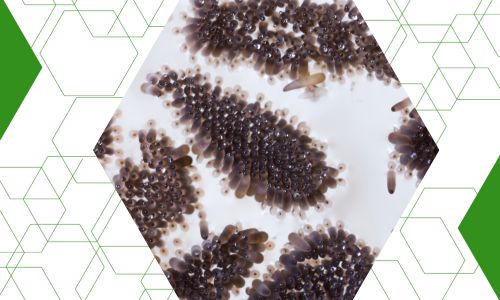
Mosquito Eggs
Mosquito eggs require aquatic conditions to hatch. Many species lay their eggs directly on water surfaces, while others lay them near bodies of water, waiting for rainfall to flood the eggs and trigger hatching. Warmer temperatures can speed up the incubation period, leading to a quicker emergence of larvae. Conversely, in colder temperatures, some eggs can remain dormant, allowing them to survive through winter and hatch when conditions become favorable again.
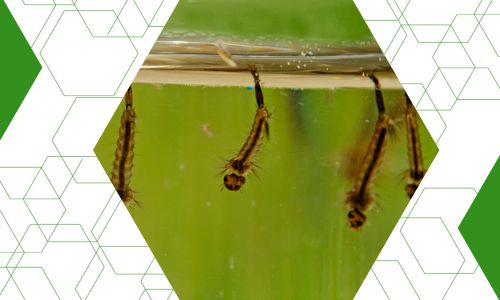
Mosquito Larvae
Once hatched, mosquito larvae live in water and are heavily dependent on temperature and water quality for growth.
Warm, stagnant water provides an ideal environment for larvae to feed and develop. They breathe through siphons at the water’s surface, so extended periods of rain can disrupt this process, potentially reducing larval survival. However, moderate rainfall creates more breeding sites and can lead to increased mosquito populations.
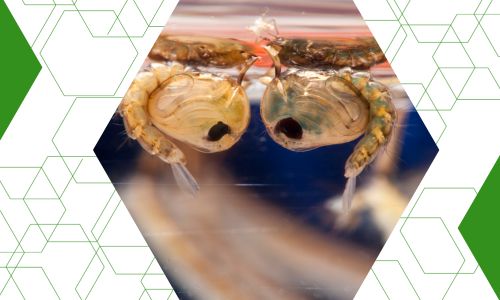
Mosquito Pupae
The pupal stage is a non-feeding phase where the mosquito transforms into an adult. This stage is relatively short, usually lasting only a few days. Like larvae, pupae are dependent on water and are sensitive to its quality and temperature.
Warm weather shortens the pupal stage, rapidly leading to the emergence of adult mosquitoes. Cold temperatures will significantly slow down or even halt their development.
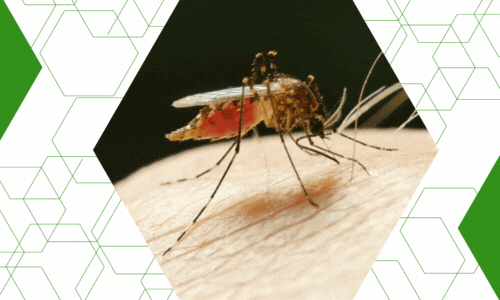
Adult Mosquitoes
Adult mosquitoes are the most weather-sensitive stage. They prefer warm and humid conditions to thrive and are less active during cold or extremely dry weather. High temperatures and humidity speed up mosquito metabolism and reproductive processes, leading to faster population growth. On the other hand, cold weather can either lead to a reduced lifespan or force mosquitoes into hibernation or dormancy until warmer conditions return.
Where Do Mosquitoes Go in the Winter?
Hibernation & Dormancy
As the temperature drops, many species of mosquitoes enter a state of hibernation or dormancy known as diapause. During diapause, the mosquito’s metabolism slows dramatically, allowing them to go months without a blood meal. When the weather warms back up these bloodsuckers will reawaken and go search you out for a snack.
The good news for us, is that some particularly troublesome species, such as Aedes aegypti cannot enter diapause. This species is an aggressive biter which can spread diseases like West Nile Virus, and winter helps keep their numbers in check. Tropical and subtropical regions, like Florida, lack this natural check against their populations and are thus more likely to experience severe mosquito problems.
Natural Shelters
Adult female mosquitoes often overwinter in shelters like hollow logs, basements, or animal burrows, entering diapause where their metabolism slows down, allowing them to survive until warmer weather returns. These shelters provide insulation and a degree of protection from the elements.
Winter Eggs
Some mosquito species have adapted to lay winter-hardy eggs, which can withstand freezing temperatures and hatch once conditions become favorable in spring. These eggs are often laid in areas prone to flooding, ensuring they will be submerged in water when the time is right.
Winter Tolerant Mosquitoes
While many mosquito species are hindered by cold weather, some can survive, and even remain active, during winter. These “winter tolerant” mosquitoes have evolved physiological and behavioral strategies to endure low temperatures and limited food resources.
Here in South Carolina, the Culiseta inornata, aptly called the Winter Mosquito, can remain active and biting throughout the winter months.
Is Winter Mosquito Prevention Necessary?
Despite their reduced activity in winter, taking preventive measures during this season can be crucial for keeping mosquito bites to a minimum when spring returns.
Removing standing water from your property, maintaining your gutters, and treating water bodies with larvicides can prevent the emergence of a large mosquito population when the weather warms up. The CDC recommends dumping out and scrubbing any outdoor water sources such as bird baths and the bases of flower pots weekly in order to prevent mosquito larvae from having time to fully develop.
A Reason To Be Thankful For Winter
Winter weather isn’t everyone’s favorite – but fewer mosquitoes is certainly a reason to rejoice. Most mosquitoes in our region become inactive when the weather drops below 50 – although it is important to stay vigilant as not all species are equally susceptible to the cold!
Keeping sources of standing water to a minimum remains important, as these can serve as reservoirs for mosquito eggs and larvae, letting them spring into action as soon as the days warm back up. If you’re tired of endlessly swatting at these pests, we offer a mosquito control program which will make your backyard a more enjoyable place to spend time all year long!
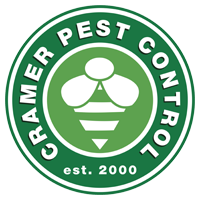
The Impact of Weather on Mosquito Activity in North Carolina and South Carolina
Protecting North Carolina and South Carolina

